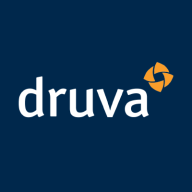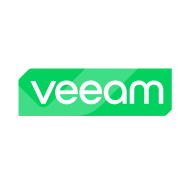

Druva Phoenix and Veeam Data Platform compete in the data protection and management category. Druva Phoenix often holds an advantage in pricing and support, while Veeam Data Platform justifies its higher cost with advanced features.
Features: Druva Phoenix offers cloud-native data protection with scalable backup and disaster recovery, integrated seamlessly with cloud environments. Veeam Data Platform stands out with extensive VM backup options, flexible recovery, and robust ransomware protection, catering to complex organizational needs.
Room for Improvement: Druva Phoenix could enhance its AI analytics and extend ransomware features beyond VMs. Improvements in platform-specific security integrations are also needed. Veeam Data Platform could streamline its deployment complexity and offer more intuitive setup assistance. Enhancing support for lower-end solutions would broaden its accessibility.
Ease of Deployment and Customer Service: Druva Phoenix is known for easy deployment and minimal maintenance, benefiting from a strong customer service model. Veeam Data Platform, while requiring more initial effort, provides extensive support and resources to guide users through its complex deployment process.
Pricing and ROI: Druva Phoenix is praised for its cost-effectiveness with adaptable pricing models that align with cloud storage needs, delivering rapid ROI through quick deployment and reduced hardware costs. Veeam Data Platform, though incurring higher upfront costs, offers significant long-term value with its comprehensive data management capabilities, appealing to businesses with intricate data setups willing to invest in enhanced features.


Druva Phoenix is a comprehensive cloud-based data protection and management solution that enables organizations to securely backup, recover, and manage their data across endpoints, physical servers, virtual machines, and cloud applications. With its scalable and flexible architecture, Druva Phoenix simplifies data protection and eliminates the need for traditional backup infrastructure.
By leveraging the power of the cloud, Druva Phoenix offers organizations a cost-effective and efficient way to protect their critical data. It provides automated backup and recovery capabilities, ensuring that data is always protected and easily recoverable in the event of a disaster or data loss. With its global deduplication and compression technology, Druva Phoenix minimizes storage requirements and reduces costs.
Druva Phoenix also offers advanced features such as point-in-time recovery, allowing organizations to restore data to a specific point in time, and granular file-level recovery, enabling users to recover individual files or folders. Its intuitive web-based console provides a centralized view of all protected data, making it easy to manage and monitor backups across the entire organization.
In addition to data protection, Druva Phoenix offers comprehensive data management capabilities. It enables organizations to gain insights into their data through advanced analytics and reporting, helping them make informed decisions and optimize their storage resources. Druva Phoenix also supports legal and compliance requirements by providing eDiscovery capabilities and ensuring data is retained and disposed of according to regulatory guidelines.
With its cloud-native architecture, Druva Phoenix offers organizations the flexibility to protect and manage their data across a wide range of environments, including on-premises, remote offices, and cloud applications such as Microsoft 365 and Google Workspace. It seamlessly integrates with popular cloud platforms like AWS and Azure, allowing organizations to leverage their existing cloud investments.
Veeam Data Platform ensures comprehensive data resilience by offering secure backups and intelligent data insights, catering to the complexities of modern data management.
Veeam Data Platform empowers businesses with reliable data protection, orchestrated recovery, and streamlined management. Providing peace of mind, it guarantees data is secure, available, and effortlessly recoverable. Organizations benefit from features such as instant recovery, simplified management, and compatibility with virtual environments. While it shines in backup and restore capabilities, it calls for improvements in integration with physical servers and enhanced cyber security features.
What are the key features of Veeam Data Platform?Organizations in industries like finance, healthcare, and manufacturing utilize Veeam Data Platform for critical data management, ensuring business continuity and disaster recovery. Employed in securing both virtual and physical workloads, Veeam integrates cloud storage for enhanced scalability and efficiency.
We monitor all Cloud Backup reviews to prevent fraudulent reviews and keep review quality high. We do not post reviews by company employees or direct competitors. We validate each review for authenticity via cross-reference with LinkedIn, and personal follow-up with the reviewer when necessary.